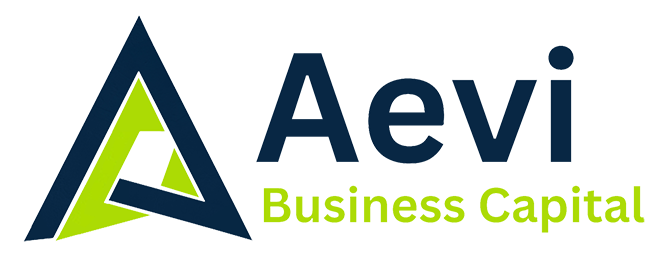
Thinking about getting an SBA loan but not sure if it’s the right move for your small business? You’re not alone. Many business owners find themselves in a similar spot, weighing the options and wondering if an SBA loan is the right fit. After all, the financial health of your business is crucial, and choosing the right funding can make a huge difference. SBA loans are popular due to their favorable terms and support from the U.S. Small Business Administration, making them a go-to for many entrepreneurs.
Before starting the application process, it’s important to understand both the benefits and drawbacks of SBA loans. Knowing the pros and cons can help you make an informed decision about your business’s future. Whether you’re expanding operations, buying new equipment, or just trying to keep cash flowing smoothly, you’ll want to consider how an SBA loan compares to other options.
What is an SBA Loan?
An SBA loan is a type of financing backed by the U.S. Small Business Administration, designed to help small businesses access funding that might be more challenging to obtain through traditional loans. The SBA itself doesn’t lend money directly to businesses. Instead, it provides a government-backed guarantee to lenders, reducing their risk and making it easier for small businesses to qualify for funding.
Wondering about the basic requirements? SBA loans typically necessitate a solid credit history, proof of business viability, and a clear repayment plan. The eligibility criteria can be stringent. However, the variety of loans, like 7(a) loans and 504 loans, provide versatile choices. 7(a) loans, for example, are great for working capital and expansion. Meanwhile, 504 loans focus on long-term asset purchases like real estate or equipment. These loans not only offer a chance for growth but also reflect a commitment to small businesses by providing them with much-needed support.
Understanding these basics can help you prepare and decide if an SBA loan aligns with your business goals. This grasp forms a solid foundation as you consider whether to pursue this funding path.
Pros of SBA Loans
SBA loans come with a variety of benefits that can greatly assist small business owners. One of the main advantages is the lower interest rates compared to traditional loans, which can make repaying the loan more manageable. Additionally, these loans often provide longer repayment terms, giving businesses more time to grow and thrive without the immediate pressure of large monthly payments.
Another appealing aspect of SBA loans is the lower down payment requirements. This can be especially helpful for new businesses that might not have substantial capital on hand. Furthermore, for those worried about collateral, SBA loans offer more accessibility. They are specifically designed to help businesses that might not have significant assets, allowing entrepreneurs to qualify more easily than with standard loans.
Beyond financial perks, SBA loans also come with a support system. Borrowers often receive additional resources, guidance, and educational tools through SBA partnerships, aimed at fostering business growth and ensuring successful loan management.
Cons of SBA Loans
While the advantages are notable, SBA loans do have some downsides that potential borrowers need to understand. The application process can be lengthy and complex, often involving extensive paperwork and detailed documentation. This can be daunting for business owners without a dedicated financial team, as any missing information might delay the approval process.
Eligibility requirements are strict, making it harder for some small businesses to qualify. A solid credit history, viable business plan, and assurance of repayment are typically necessary. The approval process tends to be longer than with other types of loans, which might be a hurdle if funds are needed quickly.
Finally, there are additional fees to consider, which can include application fees and servicing costs. Some loans may also require a guarantor, which could complicate matters if you’re a sole proprietor or lacking personal connections willing to co-sign.
How to Apply for an SBA Loan
Navigating the application process doesn’t have to be overwhelming. Start by gathering the necessary documentation, including your business plan, financial statements, and credit history. It’s important to prepare a detailed plan of how you’ll use the funds and how you intend to pay back the loan.
Here’s a straightforward guide to help you along the way:
– Research Loan Types: Identify which SBA loan type (e.g., 7(a), 504) best suits your needs.
– Check Eligibility: Ensure you meet all the basic qualifications set by the SBA and your lender.
– Organize Documents: Collect financial records, business projections, and personal background details.
– Choose a Lender: Partner with a participating lender who can assist with the SBA process.
– Complete Application: Fill out all the paperwork accurately and submit it along with your supporting documents.
Once you’ve submitted your application, patience is key as the review process can take time. Meanwhile, maintaining open communication with your lender can help address any issues promptly.
Is an SBA Loan Right for Your Business?
Deciding if an SBA loan fits your business involves weighing both your financial needs and your ability to meet the loan’s demands. If you’re seeking favorable interest rates and need support to grow without the burden of hefty payments, an SBA loan could be a great match. However, if your business requires immediate funding and can’t endure a lengthy approval process, you might need to explore alternative options.
Always compare other funding avenues like term loans, merchant cash advances, or business lines of credit. By evaluating the unique financial situation of your business and your long-term goals, you can make an informed choice. Understanding these elements equips you with the insight needed to find the most suitable funding solution for your business endeavors.
Choosing the right path for financing your business might feel overwhelming, but you’re not alone. Whether you’re considering SBA loans or exploring other options, understanding your needs is the first step. Discover how working with a trusted partner can simplify decisions about financing for businesses. Reach out to Aevi Consulting to explore the available options and find the best solution that aligns with your business goals.






No comment yet, add your voice below!